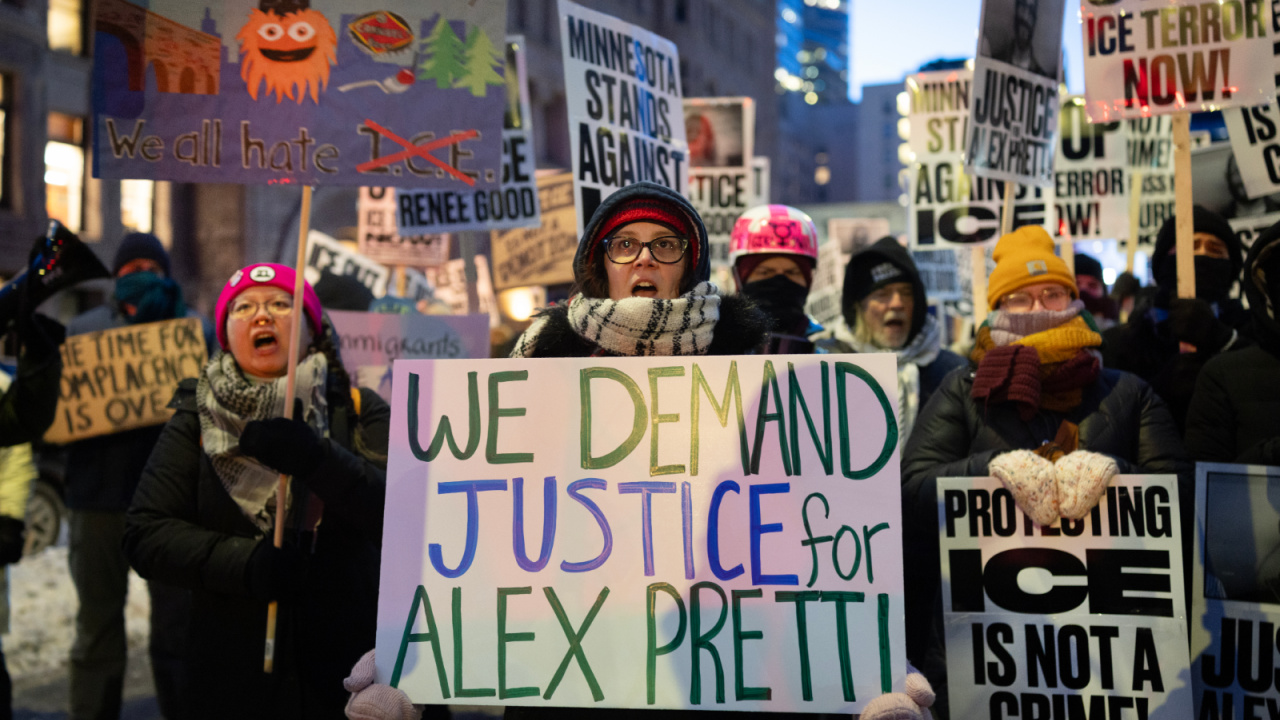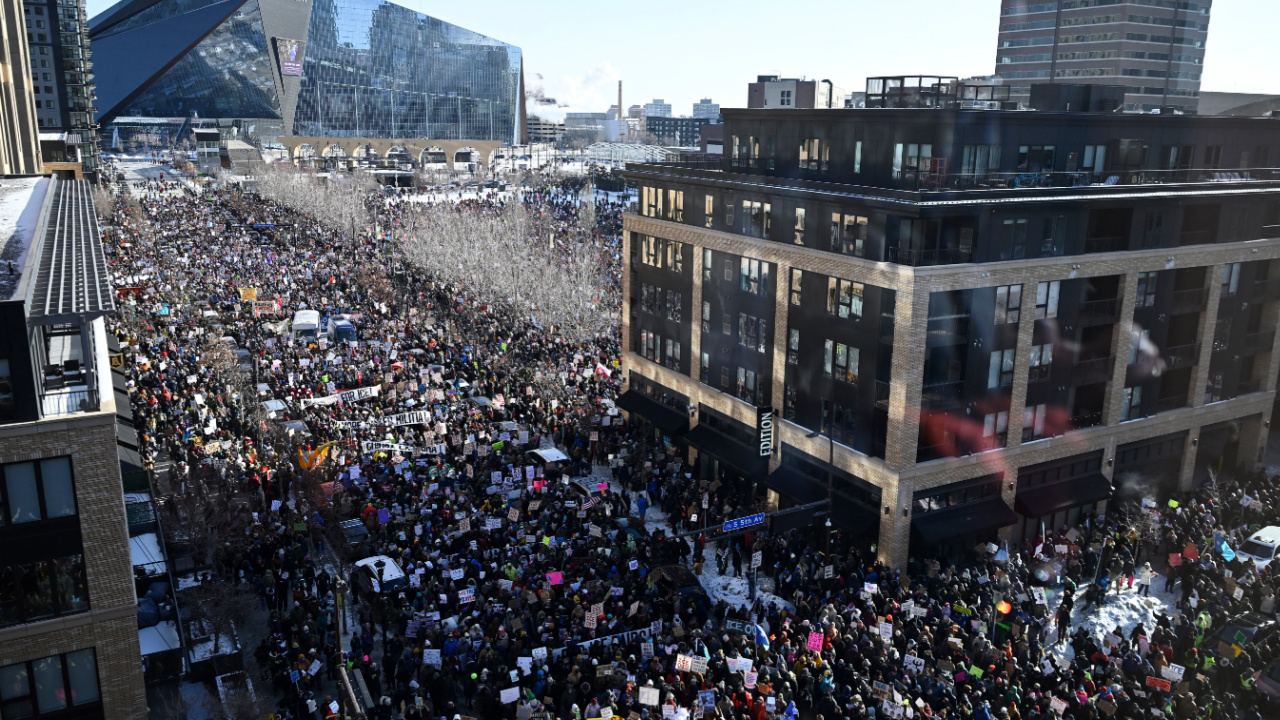
Undocumented and Queer: Why Immigration Raids Are Putting LGBTQ+ Lives at Even Greater Risk
Immigration raids bring about fear and uncertainty to immigrant communities. At the same time, the United States has witnessed the federal government currently pushing for mass deportations, raiding communities across the country. Together, the raids and the assault on LGBTQ+ rights are setting the stage for a unique and specific attack. Undocumented LGBTQ+ people face a compounding risk.
According to Frankie Miranda, the president and CEO of the Hispanic Federation, this is a test run. By first targeting the most vulnerable community, the federal government is testing the waters. In doing so, they want to see what they can get away with. To better understand the impact, we spoke with Miranda about what is at stake for undocumented LGBTQ+ people.
Immigration raids are putting LGBTQ+ people at risk
Undocumented LGBTQ+ people have sought refuge and freedom in the United States for decades. Specifically, people fleeing oppressive regimes and societal hate that put their lives in danger have found solace in the U.S. However, some of the most vulnerable people in the undocumented community are now facing an uncertain future.
Importantly, Frankie Miranda understands that the people coming to the U.S. are coming for safety. Many come to escape persecution from gangs and hostile societies. For these individuals, it’s often the only chance to live a life free from threats of violence for being part of the LGBTQ+ community. Furthermore, Miranda argues that the people caught in immigration raids face especially dangerous risks. The people facing this kind of jeopardy include those like Andry José Hernández Romero, the gay Venezuelan hairstylist sent to the Terrorism Confinement Center (CECOT) in El Salvador.
“What we are talking about is putting the lives at risk of every LGBTQ person who is being removed from the country right now. It is not taking into consideration the risk of not only limited opportunities, it is about the personal safety,” Miranda tells mitú. “It is very difficult to make the decision to abandon your home country and try to make the journey to the United States. It is even more difficult for those who are LGBTQ and those who are more identifiable. Those who are nonbinary or transgender. People who cannot fit very specifically into the restrictive gender roles in many of our countries of origin.”
Miranda has a personal connection to the fight for LGBTQ+ immigrants
Miranda understands the issues facing LGBTQ+ immigrants personally. In 2003, his husband had to go back to Brazil. For ten years, the couple maintained a relationship but were not able to bring him back to the U.S. because marriage equality was not the law of the land at the time. So, over the years, they waited, hoping to one day reunite in the U.S.
“Once marriage equality became the law of the land, I was able to petition my life partner, and we were able to get married,” Miranda recalls. “Today, he is an American citizen. There are many couples in this country who belong to the lGBTQ community who are right now being denied the opportunity to be able to live their lives and be recognized through the basic right of marriage just because of the way that they arrived to this country whether or not they arrived through a legal port of entry.”
Advocates closely link LGBTQ+ rights with immigrant rights. As LGBTQ+ people lose rights and protections, it filters down to some of the most vulnerable people in our society. This includes undocumented people in the LGBTQ+ community.
The administration is eroding rights for both immigrants and the LGBTQ+ community
Miranda points to the recurring villainization of the LGBTQ+ community over the decades. For example, the HIV and AIDS epidemic of the ‘80s and ‘90s first fueled negative stereotypes. Then, in the 2000s, opponents framed marriage equality as the end of the “dignity” of marriage. Now, politicians are deciding who gets to use which bathroom.
According to Miranda, those targeting the LGBTQ+ community learned how to fight by studying the community itself. She explains that vocal advocates make change happen. This is exactly what the opposition to LGBTQ+ rights has learned. Moreover, this is something the LGBTQ+ community has done for decades to fight for the right to marry, adopt children, access HIV treatments and preventative care, and nondiscrimination policies.
“The first thing is that we, who have the privilege to be in this country and be citizens and to be queer, understand that is the moment in which we need to raise our voices on behalf of those who are vulnerable,” Miranda says. “The other thing we have to do is take action. even if it is just to volunteer and be out on the street demanding our rights for those who cannot advocate for themselves.”
The immigration raids are a test of what the administration thinks they can do to people
For months, American citizens have watched as the federal government has pushed the limits of what they can accomplish. They have arrested people indiscriminately and attempted to deny people due process guaranteed by the Constitution.
“This is also for anybody we are talking about when it comes to the undocumented. They are testing their theories. They are talking about taking undocumented people and incarcerating them in El Salvador,” Miranda says. “Now they are talking about taking American citizens and putting them in jails abroad. Then it is going to be about people who are not conforming to the government’s wishes and taking them out, silencing them, and persecuting them. We are seeing a series of theories being tested, and they are starting with the trans community. They are going to come after all of us next.”
Miranda argues that the government is using its treatment of the undocumented and LGBTQ+ communities as a test run. The Supreme Court recently made decisions that will limit judicial power to block unconstitutional acts. With the guardrails of democracy disappearing, the safety of all people in the U.S. is at risk. We are witnessing a Congress and Supreme Court cutting their own power to give the executive branch broader reach.




